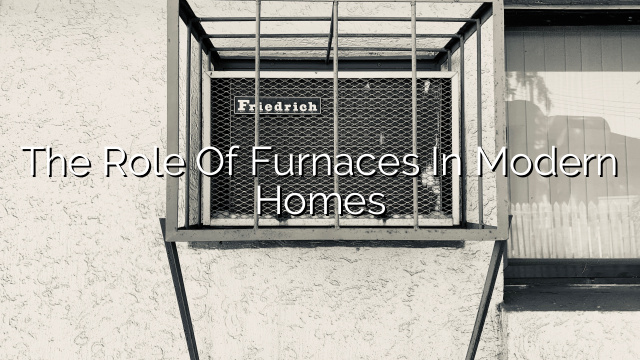Introduction
Heating is an essential part of any home, especially during the colder months. A furnace is a common heating system found in many homes, and it works by forcing heated air through ducts to various rooms. When it comes to choosing the right furnace size for your home, the heating BTU plays a crucial role. BTU stands for British Thermal Unit, and it measures the amount of heat a furnace can produce. In this guide, we will explore different heating BTU options and help you determine which one is right for your home.
Understanding Heating BTU’s
Before we dive into different heating BTU options, it’s important to understand what BTU stands for and how it affects your heating system. BTU measures how much heat a unit can produce, and it is typically used to measure the heating capacity of furnaces, boilers, and other heating appliances. The higher the BTU, the more heat the appliance can produce.
Why Choosing the Right BTU is Important
Choosing the right BTU for your furnace is crucial because it ensures that your home is adequately heated. A furnace with a BTU that is too low will struggle to heat your home efficiently, while a furnace with a BTU that is too high will consume excess energy and lead to higher energy bills. Additionally, an oversized furnace may cycle on and off frequently, leading to uneven heating and potential wear and tear on the system.
Choosing the Right Furnace Size
Now that you understand the importance of choosing the right BTU for your furnace, let’s explore some common heating BTU options and how to determine which one is right for your home:
30,000 BTU’s
A furnace with a heating BTU of 30,000 is suitable for small homes or apartments with minimal heating needs. This size is best for spaces under 1,000 square feet.
40,000 BTU’s
A furnace with a heating BTU of 40,000 is suitable for small to medium-sized homes with average heating needs. This size is best for spaces between 1,000 and 1,500 square feet.
60,000 BTU’s
A furnace with a heating BTU of 60,000 is suitable for medium-sized homes with average heating needs. This size is best for spaces between 1,500 and 2,000 square feet.
80,000 BTU’s
A furnace with a heating BTU of 80,000 is suitable for larger homes with higher heating needs. This size is best for spaces between 2,000 and 2,500 square feet.
100,000 BTU’s
A furnace with a heating BTU of 100,000 is suitable for larger homes with high heating needs. This size is best for spaces between 2,500 and 3,000 square feet.
120,000 BTU’s
A furnace with a heating BTU of 120,000 is suitable for larger homes with very high heating needs. This size is best for spaces between 3,000 and 3,500 square feet.
140,000 BTU’s
A furnace with a heating BTU of 140,000 is suitable for larger homes with extremely high heating needs. This size is best for spaces between 3,500 and 4,000 square feet.
150,000 BTU’s
A furnace with a heating BTU of 150,000 is suitable for very large homes or commercial buildings with extensive heating needs. This size is best for spaces over 4,000 square feet.
Determining the Right BTU for Your Home
Now that you have an understanding of different heating BTU options, you may be wondering how to determine the right BTU for your home. Here are a few factors to consider:
- Size of your home: As a general rule, larger homes require furnaces with higher BTU ratings.
- Climate: Colder climates require higher BTU ratings to ensure sufficient heating.
- Insulation: Well-insulated homes require lower BTU ratings as they retain heat more effectively.
- Number of windows and doors: More windows and doors lead to heat loss, which may require a higher BTU rating.
- Ceiling height: Homes with high ceilings may require a higher BTU rating to ensure even heating.
It’s always a good idea to consult with a professional HVAC technician who can assess your home’s heating needs and help you choose the right furnace size.
FAQ
What happens if I choose a furnace with a BTU rating that is too low?
If your furnace has a BTU rating that is too low for your home, it may struggle to heat your space adequately. Your home may feel cold, and the furnace may have to work harder to maintain a comfortable temperature, potentially leading to increased energy consumption and higher energy bills.
What happens if I choose a furnace with a BTU rating that is too high?
If your furnace has a BTU rating that is too high for your home, it may cycle on and off frequently, leading to uneven heating and potential wear and tear on the system. This can also result in higher energy bills.
Can I rely solely on the square footage of my home to determine the right BTU rating?
While the square footage of your home is a good starting point, it’s not the only factor to consider. Other factors, such as climate, insulation, and ceiling height, can also affect your heating needs. It’s best to consult with a professional HVAC technician for an accurate assessment.
What is the average lifespan of a furnace?
The average lifespan of a furnace is typically between 15 and 20 years. Regular maintenance and proper sizing can help extend the life of your furnace.
Can I upgrade my furnace if I choose the wrong BTU rating?
If you choose a furnace with the wrong BTU rating, you may be able to upgrade or downsize your furnace. However, it’s best to consult with a professional HVAC technician to determine the best course of action.
What are some energy-efficient options for heating my home?
There are several energy-efficient options for heating your home, including high-efficiency furnaces, heat pumps, and geothermal heating systems. These systems can help you save on energy costs while reducing your carbon footprint.
Are there any government rebates or incentives for upgrading to a more energy-efficient heating system?
Yes, many government rebates and incentives are available for upgrading to more energy-efficient heating systems. These can vary depending on your location and may include tax credits, rebates, or financing options. It’s worth researching available programs or consulting with a professional HVAC contractor to explore your options.
Conclusion
Choosing the right heating BTU for your home is essential to ensure efficient and comfortable heating. By considering factors such as the size of your home, climate, insulation, and more, you can determine the appropriate furnace size. Consulting with a professional HVAC technician is always recommended to ensure accurate sizing and proper installation. Remember, a well-sized furnace will provide optimal heating performance while minimizing energy consumption and maintaining a comfortable living environment.











